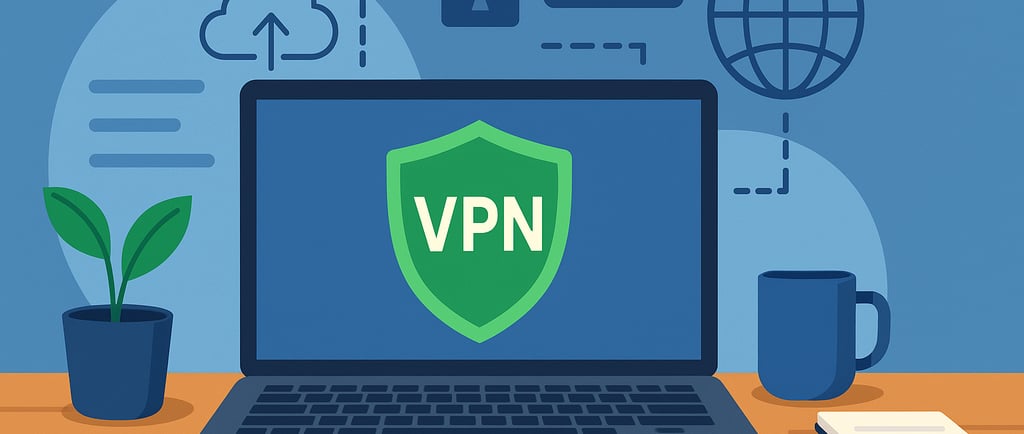The Environmental Impact of VPN Servers
VPN


When people think about VPNs, they usually focus on privacy, security, and online freedom. But there’s another side to the story that often gets overlooked: the environmental impact of the infrastructure that powers VPN services. Like all internet-based technologies, VPNs rely on thousands of servers around the world, and these servers consume energy, produce heat, and leave a carbon footprint.
So, how eco-friendly are VPNs? Let’s break it down.
1. The Energy Demands of VPN Servers
A VPN works by routing traffic through encrypted tunnels on servers located worldwide. To provide fast connections and bypass geo-restrictions, VPN companies operate large server networks, often spread across dozens of countries.
Power usage: Each server consumes electricity around the clock. Multiply that by hundreds or thousands of servers, and the energy demand becomes significant.
Cooling systems: Data centers housing VPN servers require powerful cooling systems to prevent overheating, which adds to energy consumption.
2. Carbon Footprint of Data Centers
The biggest environmental concern comes from the data centers that host VPN servers. Data centers are notorious for being heavy electricity consumers. According to industry estimates:
Data centers account for 1–2% of global electricity use.
A single large data center can use as much energy as a small town.
Unless powered by renewable energy, these data centers rely on fossil fuels, contributing to greenhouse gas emissions.
3. The Scale of VPN Networks
Leading VPN providers often advertise 10,000+ servers worldwide. While this scale offers users more choice and better performance, it also multiplies the environmental burden.
More servers = higher energy costs.
Idle servers still consume power even if few users are connected.
This raises questions about whether such large server fleets are sustainable.
4. Green Initiatives in the VPN Industry
The good news is that some VPN providers are starting to address environmental concerns. Efforts include:
Renewable energy: Partnering with data centers that run on wind, solar, or hydroelectric power.
Server virtualization: Running multiple virtual servers on one physical machine to reduce hardware use.
Carbon offsetting: Investing in tree planting or carbon capture projects to balance emissions.
Smaller, smarter networks: Focusing on efficient routing rather than simply adding more servers.
5. What Users Can Do
While the responsibility lies mostly with providers, users can also play a role in reducing the environmental impact of VPN usage:
Choose eco-conscious VPNs – Some providers are transparent about their energy policies.
Connect to nearby servers – Shorter data paths require less energy and reduce latency.
Disconnect when not needed – Leaving your VPN on 24/7 when unnecessary increases server loads.
Support renewable tech – Using green energy at home reduces your indirect footprint.
6. The Future of Sustainable VPNs
As demand for online privacy grows, VPN usage is only expected to increase. The challenge for the industry is to balance privacy with sustainability. Possible future trends include:
Green-certified VPNs – Providers highlighting eco-friendly operations as a selling point.
AI-optimized routing – Smarter systems that minimize server strain and energy waste.
Greater transparency – More providers publishing reports on their carbon footprint.
Decentralized VPNs (dVPNs) – Community-driven networks that distribute traffic across user devices, potentially reducing reliance on huge data centers.
Final Thoughts
VPNs are essential for online privacy, but they are not impact-free. Every encrypted tunnel you use requires energy, and every server you connect to leaves a footprint. While the effect of one user is small, the global scale of VPN adoption makes the environmental question important.
The encouraging part is that the industry is moving toward greener practices, and as users, we can help by supporting providers that prioritize sustainability.
In the end, the future of VPNs should not only be private and secure but also environmentally responsible.